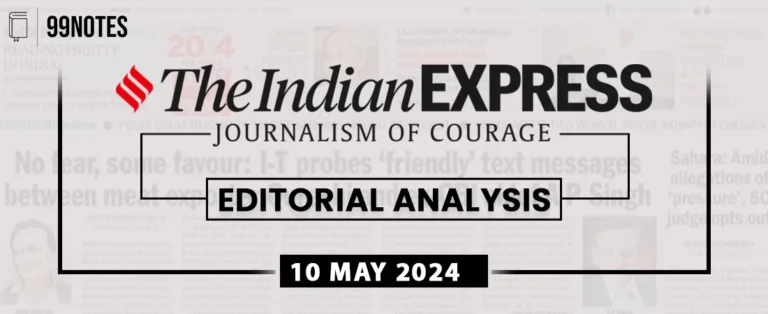17 January 2025 : The Hindu Editorial Analysis
1. An alliance of democracies with India at its core
(Source – The Hindu, Editorial – Page No. – 8)
| Context |
|
Strengthening EU-India Relations for a Democratic Alliance
- The year 2024 marked a pivotal period globally, with super-election events shaping the world’s democracies. As 2025 unfolds, it presents an opportunity for democracies to regroup and forge new ways to support one another.
- Among these partnerships, the relationship between Europe and India stands out. While historically strong in strategic intent, it has struggled with effective delivery, and now is the time for transformation.
Challenges in EU-India Relations
- For over 17 years, the focus of EU-India relations has been the Free Trade Agreement (FTA) negotiations. These prolonged discussions have overshadowed other critical areas of collaboration.
- A successful FTA between the world’s largest democracy and its biggest trading bloc could serve as a cornerstone to counter rising protectionist trends and foster economic and geopolitical strength. However, the complexity of negotiations has delayed progress, necessitating a broader and more pragmatic approach to collaboration.
Moving Beyond Trade
While an FTA remains crucial, it is equally important to pivot towards geostrategic issues that transcend trade. This involves high-level political dialogue focusing on:
- Economic security through resilient supply chains.
- Defense cooperation to address shared security challenges
- Joint innovation in areas like space exploration, emerging technologies, and critical industries such as pharmaceuticals.
Geopolitical Dynamics and Shared Challenges
- Europe and India face intricate geopolitical dynamics. Europe has expressed frustration over India’s response to Russia’s invasion of Ukraine and its longstanding ties with Moscow.
- These ties are rooted in history, just as India navigates its complex rivalry with China. Despite cooperation within BRICS, India remains cautious about Beijing’s growing influence, which aligns with its broader democratic values.
- India’s engagement with both Russia and China reflects its strategic need to avoid being entangled in power blocs as the world polarizes into democratic and autocratic alliances. However, Europe’s economic dependence on China also highlights double standards.
- A mutual understanding must be established, recognizing that the “No Limits” partnership between Russia and China poses a shared threat to the democratic world.
Building a Practical Framework
To strengthen this partnership, a series of pragmatic steps must be implemented:
- Trade and Investment: Break down barriers incrementally and foster investment in critical industries.
- Supply Chain Resilience: Reduce dependence on China by creating alternative supply chains, with India positioned as a “Trusted Partner.”
- Defense Collaboration: Accelerate EU-India defense discussions to complement India’s strong ties with the U.S., enhancing security guarantees.
- Technology Leadership: Deepen cooperation in emerging technologies like quantum computing and biotech to counter China’s global dominance.
Strengthening Defense and Technology Collaboration
- India’s defense cooperation with the U.S., as its “Major Defense Partner” and member of the Quad, serves as a model for Europe.
- EU-India defense collaboration should scale up, with Europe offering investments and advanced weapons to replace India’s reliance on Russian arms.
- Space exploration is another promising area where both sides can pool resources and expertise for mutual benefit.
- In technology, the EU-India Trade and Technology Council (TTC) mirrors similar frameworks with the U.S., yet it remains underutilized.
- Drawing inspiration from the U.S.-India iCET initiative, Europe and India can prioritize collaboration in critical and emerging technologies to address the existential challenge posed by China’s dominance.
A Broader Vision for EU-India Ties
- Beyond economic and strategic ties, fostering stronger people-to-people connections can deepen mutual understanding.
- Educational and cultural exchanges will play a pivotal role in building a relationship based on trust and shared democratic values.
Conclusion
In the next decade, India is poised to become the world’s third-largest economy, presenting vast opportunities for Europe. More importantly, the strategic goal should be to form a robust alliance of democracies, with India as a central pillar. By addressing shared challenges, embracing mutual strengths, and promoting tangible collaboration, Europe, India, and the U.S. can build an unstoppable democratic coalition capable of countering autocratic powers and ensuring a secure, prosperous future.
For more such UPSC-related The Hindu editorial analysis: –16 January 2025 : The Hindu Editorial Analysis



